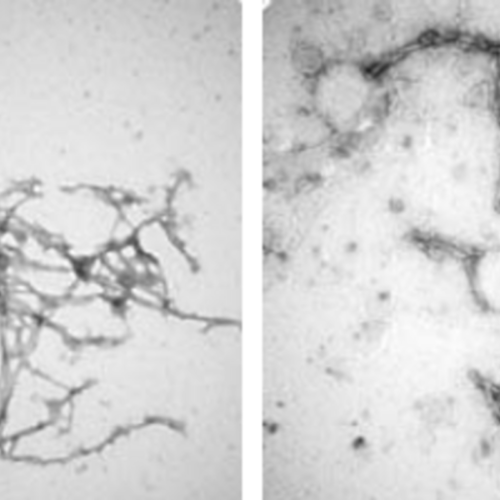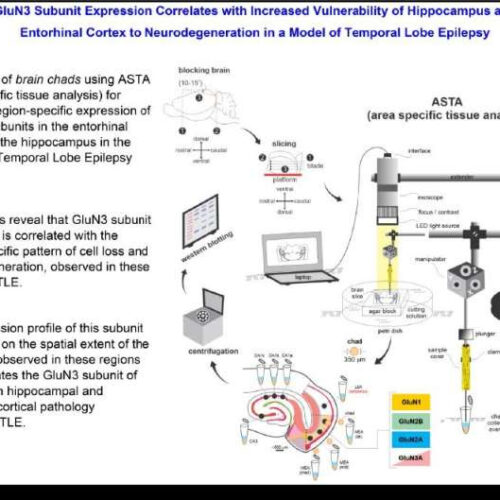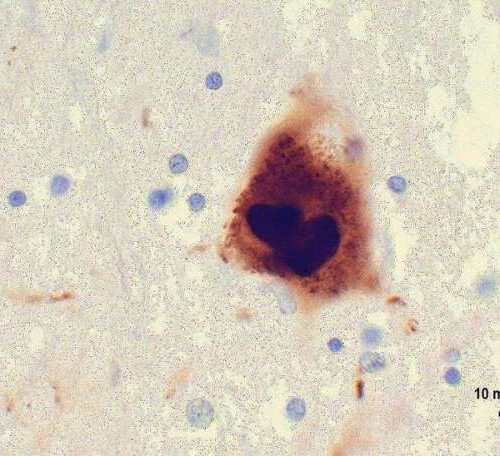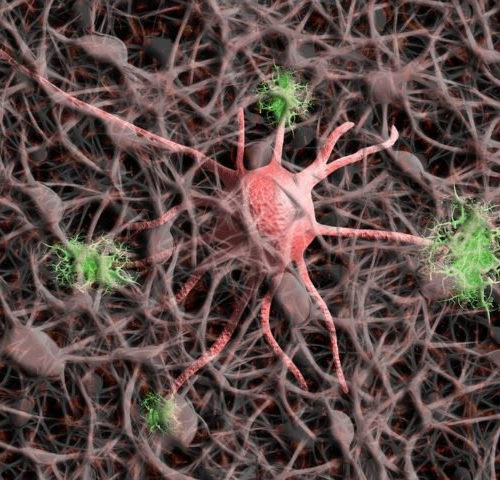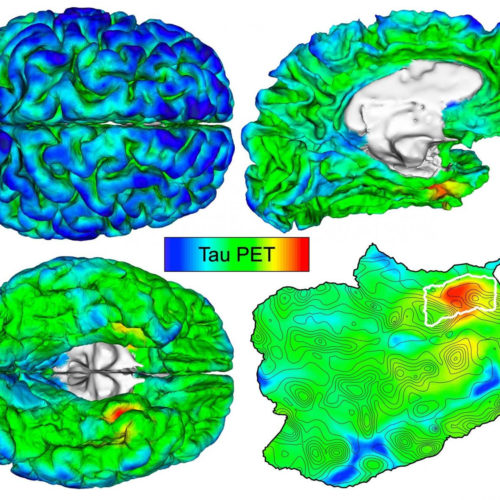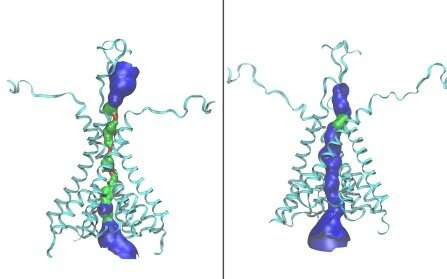By Michael Irving July 31, 2022 Left: alpha-synuclein clumps, which can accumulate in the brain and are associated with Parkinson’s disease. Right: these clumps after being treated with a new nanobody treatment.Xiaobo Mao Clumps of misfolded proteins that gather in the brain have been linked to neurodegenerative diseases like Parkinson’s. Now, newly identified nanobodies show...
Tag: <span>brain protein</span>
Link between specific brain protein and vulnerability to temporal lobe epilepsy neurodegeneration discovered
by Audrey Post, Florida State University Graphical abstract. Credit: Journal of Neurophysiology (2022). DOI: 10.1152/jn.00070.2022 A team of Florida State University College of Medicine researchers has found a link between a specific protein in the brain and increased vulnerability to neurodegeneration for individuals with temporal lobe epilepsy (TLE). Their findings are published in the Journal of Neurophysiology. TLE is...
Researchers ID location on brain protein linked to Parkinson’s disease development
by Haley Wasserman, Johns Hopkins University School of Medicine Researchers at Johns Hopkins Medicine have pinpointed the section of a brain protein called alpha-synuclein that enables it to latch onto neurons and likely drives the development of Parkinson’s disease, a progressively worsening neurological disorder. The photomicrograph shows an aggregation of alpha-synuclein in brain tissue taken from...
USask-led research team shows alternate form of brain protein that causes Alzheimer’s actually protects against the disease
Findings from a new study on Alzheimer’s disease (AD), led by researchers at the University of Saskatchewan (USask), could eventually help clinicians identify people at highest risk for developing the irreversible, progressive brain disorder and pave the way for treatments that slow or prevent its onset. Image credit: Pixabay (Free Pixabay license) The research, published in the journal Scientific Reports in...
Automated imaging detects and tracks brain protein involved in Alzheimer’s disease
MASSACHUSETTS GENERAL HOSPITAL IMAGE: By mapping individuals’ unique brain anatomy, Massachusetts General Hospital researchers have identified early tau PET imaging signals to track Alzheimer’s pathology. Left: Tau PET images for a person with normal cognition. Right: top, 3D brain surface rendering with tau PET overlay; bottom, flat map showing brain surface details, with cortical tau...
Discovery of a new form of a brain protein has clinical implications
by Ellen Goldbaum, University at Buffalo Diagram of the NMDA receptor protein (cyan) on the left illustrates its closed conformation; diagram on the right illustrates the open conformation, discovered by UB researchers. Credit: Han Wen A new study by University at Buffalo researchers has revealed that the absence of a single interaction within a brain receptor reduces its activity....
Novel agent flips on garbage disposal in neurons, eliminating toxic brain proteins in mice
by Georgetown University Medical Center Neuroscientists at Georgetown University Medical Center say they have developed and tested an agent that reduces the buildup of toxic proteins in animal models of both Parkinson’s and Alzheimer’s diseases, and improves cognitive and motor behavior. The team will present their findings about the agent, CM101 (also known as BK40143),...

